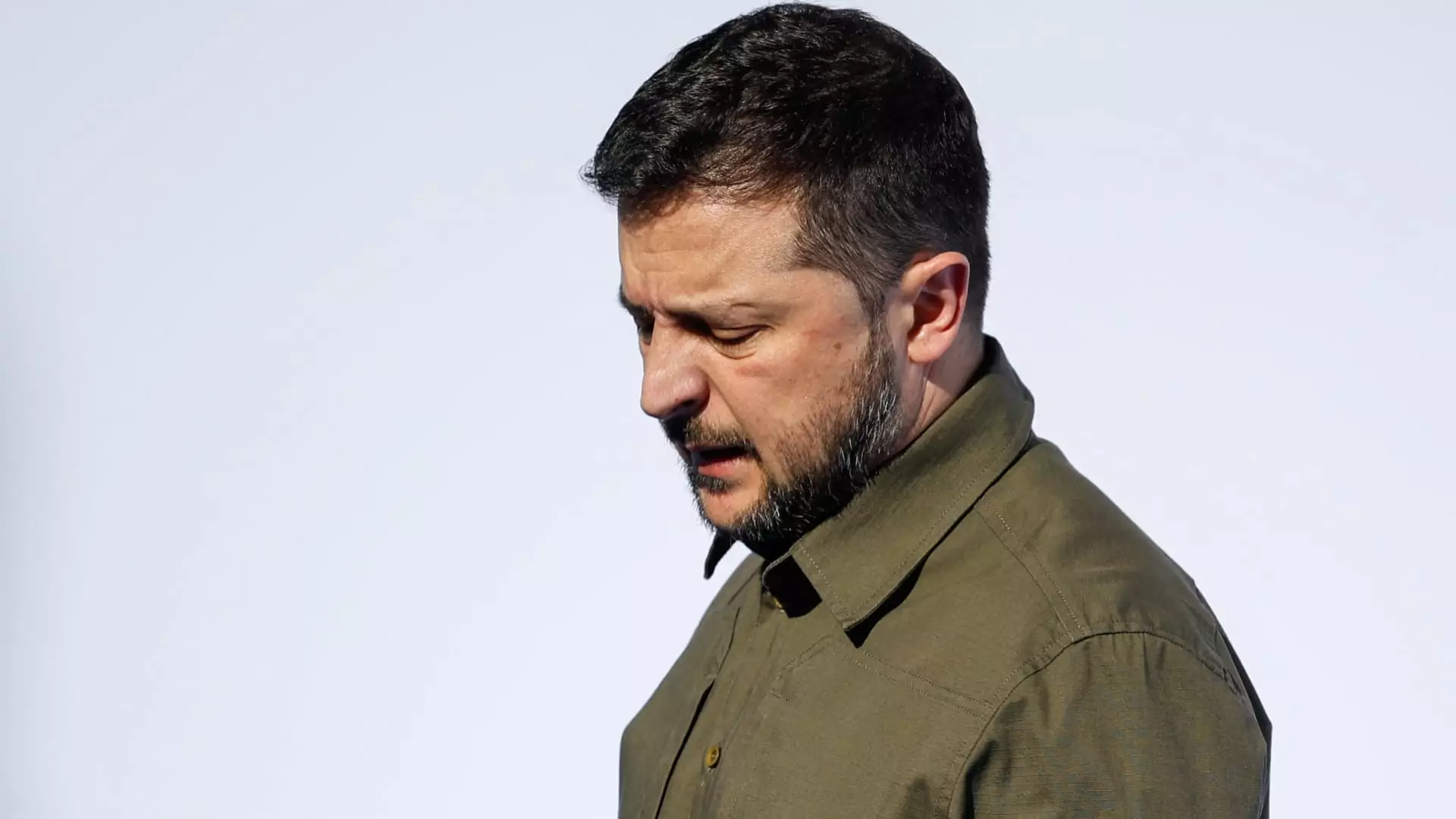Ukrainian President Volodymyr Zelenskyy finds himself in a challenging position as he seeks to capture the attention and support of the international community. Despite the ongoing war with Russia since February 2022, Zelenskyy’s plea for political, economic, and military aid may fall on deaf ears. The recent focus on the Israel-Hamas conflict during the European Union (EU) summit overshadowed any further discussions about Russia’s aggression in Ukraine. Zelenskyy now faces an uphill battle to secure the assistance that Ukraine desperately needs, with even the newly appointed U.S. House Speaker, Mike Johnson, showing little interest in providing additional funding from Congress. This shift in attention and priorities reflects the changing geopolitical landscape, leaving Ukraine in a vulnerable position.
Ukraine’s struggle to gain support is further exacerbated by the changing dynamics within the EU. Slovak Prime Minister Robert Fico openly criticized Ukraine, branding it as “one of the most corrupt countries in the world.” Fico’s remarks highlight the growing skepticism within some EU member states about providing military aid and expressing doubts about the effectiveness of a military solution to the conflict. Fico’s stance, along with the threats of veto power from neighboring Hungary’s Prime Minister Viktor Orbán, underscores the challenges Zelenskyy faces in garnering unanimous support within the EU. The potential denial of military aid not only hampers Ukraine’s defense capabilities but also weakens its position in negotiations.
While Ukraine seeks assistance, Russia is reinforcing its military campaign financially. Russian Finance Minister Anton Siluanov announced that approximately one-third of next year’s government spending, totaling about 109 billion euros ($115 billion), will be directed towards defense. This substantial increase in defense expenditure signifies Russia’s unwavering commitment to its military operation in Ukraine. Despite receiving significant financial support from Europe and the United States, Ukraine’s armed forces struggled to achieve their goals due to Russia’s formidable defense systems. As winter approaches, Ukraine’s offensive operations are expected to slow down, adding further obstacles to their already complicated situation.
Ukraine’s hopes lie in the financial aid it receives from the EU. By year-end, EU leaders must approve a four-year, 50-billion-euro (nearly $53 billion) package aimed at providing budget support, promoting investment, and assisting with reconstruction in Ukraine. However, the veto powers held by member states could hinder the approval process. Prime Minister Orbán, for instance, expressed his unwillingness to approve EU proposals that would provide additional financial assistance to Ukraine. Orbán claims that the current strategy, which relies heavily on military means, has failed and calls for a clear and comprehensive plan before allocating funds. This stance has disappointed other EU nations, who view Ukraine as a bulwark for democracy and as a test case for resisting Russia’s encroachment.
Critics of Fico and Orbán argue that if Ukraine does not receive assistance, Russia’s influence will continue to grow unchecked. Estonian Prime Minister Kaja Kallas questions the alternative, stating that without support for Ukraine, Russia emerges as the victor, further endangering global security. The Irish Prime Minister, Leo Varadkar, emphasizes the severity of the situation, warning that failure to stop Russia’s aggression in Ukraine will only embolden President Putin to expand his influence elsewhere.
Amidst the challenges and shifting dynamics, Ukraine finds solace in the unwavering support of some EU nations. Germany’s provision of the IRIS-T SLM air defense systems to Ukraine demonstrates their commitment to Ukraine’s defense. German Defense Minister Boris Pistorius emphasizes that, despite global security concerns, supporting Ukraine remains a priority. Germany’s continued assistance serves as a reminder that Ukraine’s struggle will not be forgotten.
Ukraine faces a multitude of challenges in its quest for support amidst evolving geopolitics. The shifting focus of international attention, internal skepticism within the EU, and Russia’s significant investment in the war effort all contribute to the difficulties faced by President Zelenskyy. The approval of EU funding packages, contingent on member state consensus, further compounds Ukraine’s struggle. Despite these obstacles, Ukraine must find alternative strategies and maintain the support of unwavering allies, as the consequences of a destabilized Ukraine reverberate beyond its borders.


Leave a Reply